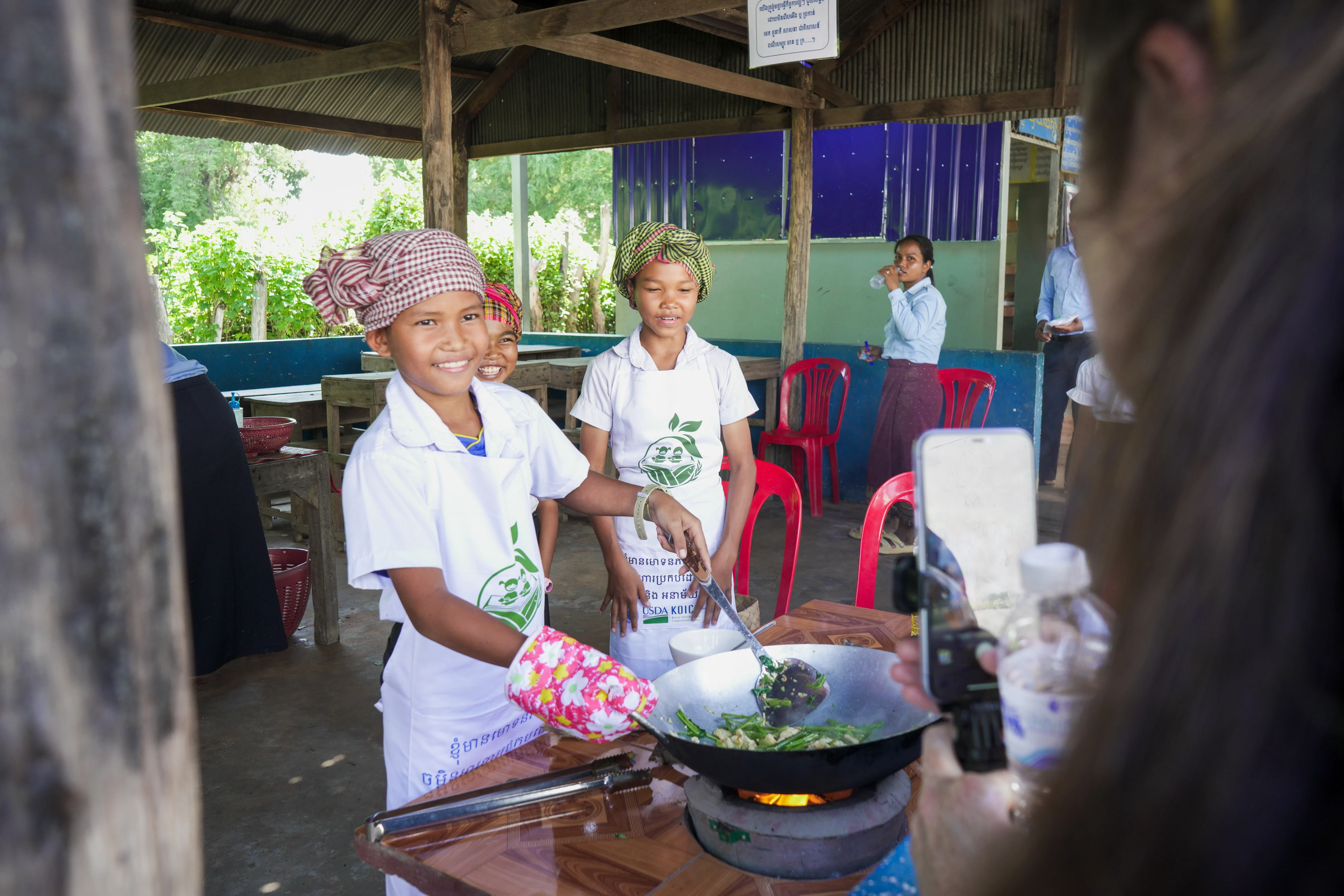Education for All
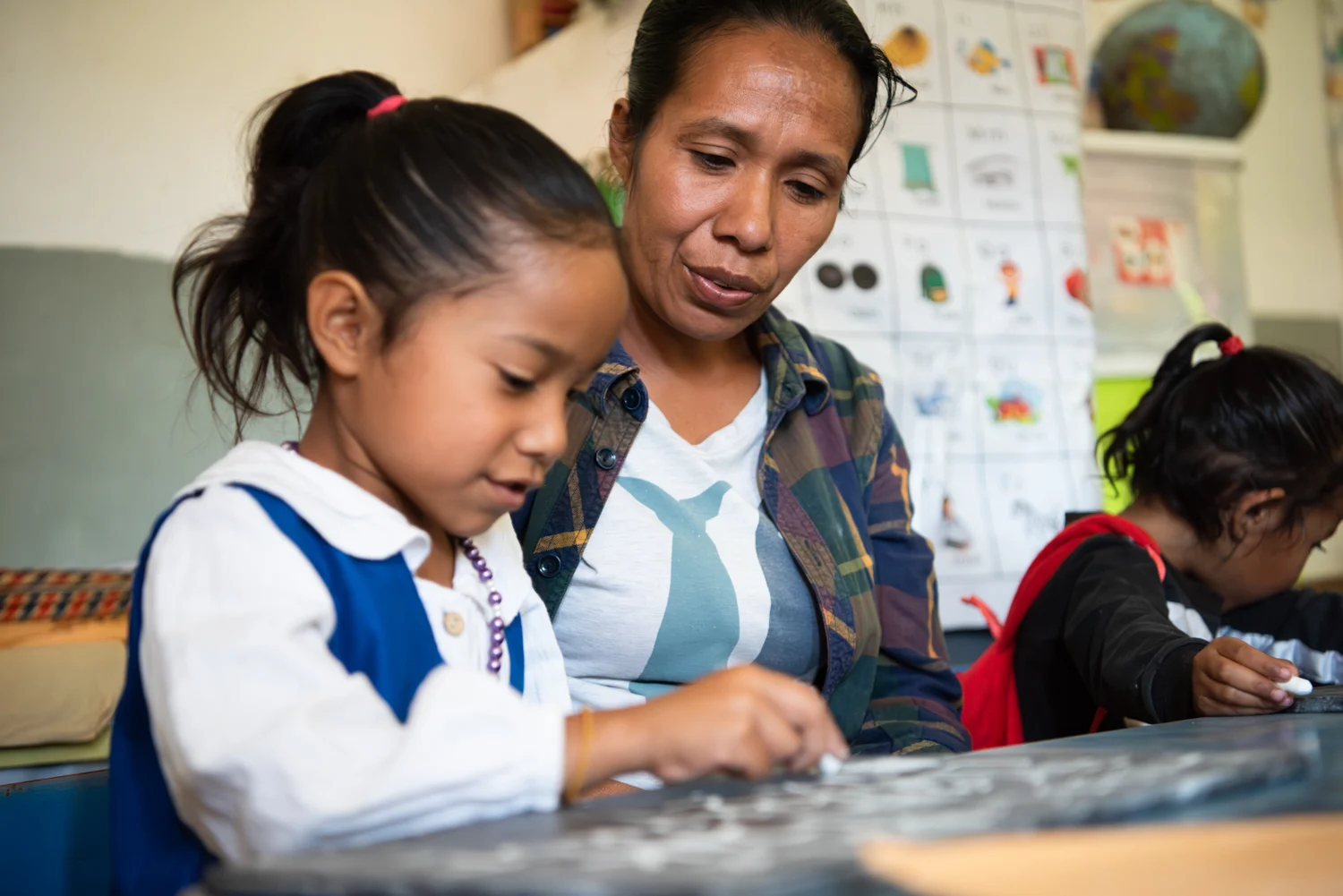
Every child has the right to an education that equips
them with the skills, knowledge, and confidence to
shape their future.
Education is the key to a better world, one where children, especially girls, can break free from cycles of poverty, challenge inequality, and contribute to building stronger, more resilient communities.
Plan International partners with communities to raise awareness about the importance of girls' education, addressing the root causes of educational barriers such as gender-based violence, child marriage, and early pregnancy, so that girls are able to complete their education and choose their own futures.
Our collective global impact in FY24
17.7 million children and adults accessed inclusive, quality education
5.2 million girls gained better access to education
770,000+ girls with improved skills and work opportunities
433,000+ community members trained in gender equality
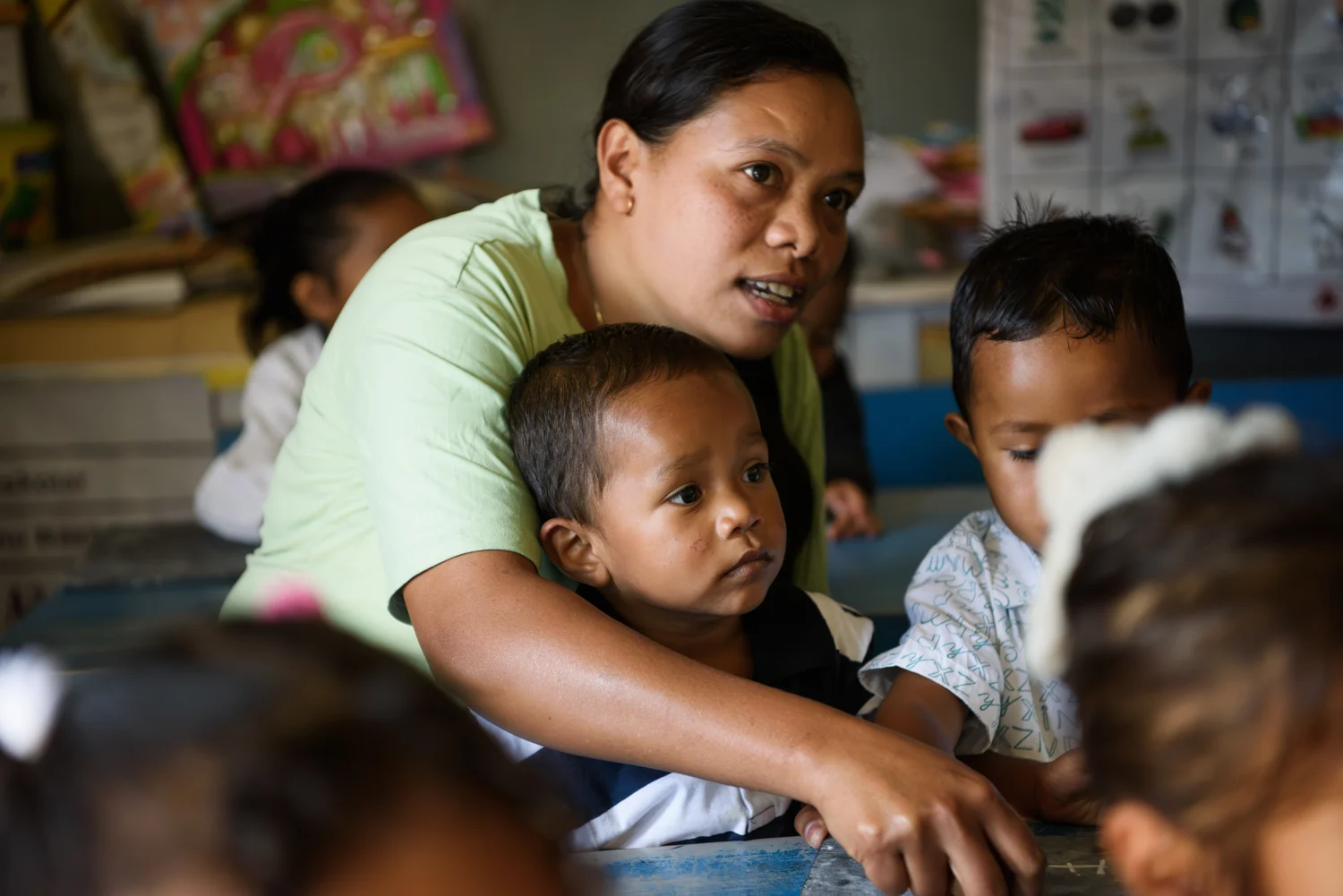
We believe that every girl should have the opportunity to access education in a safe and supportive environment, and through gender-transformative education, we aim to shift societal norms and power dynamics that have historically marginalized girls and other vulnerable groups.
By addressing gender biases and promoting equality, we aim to break down the barriers that hold girls back from fulfilling their potential. Our programs actively challenge traditional gender roles, equipping girls with the confidence to pursue their dreams, and champion change in their societies.
Studies have shown that when girls are educated, entire communities benefit. Educated girls are more likely to start businesses, invest in their families, and become leaders in their communities. This ripple effect is essential in addressing some of the world’s most pressing issues, from climate change to economic inequality.
Our work also includes communities, governments, religious leaders, and families in the process of transforming education systems. We recognize that lasting change can only occur when these key stakeholders are involved in challenging and shifting societal attitudes about gender and education. By creating a collective commitment to end gender inequality, we can help create educational spaces where all children—regardless of gender—can thrive.
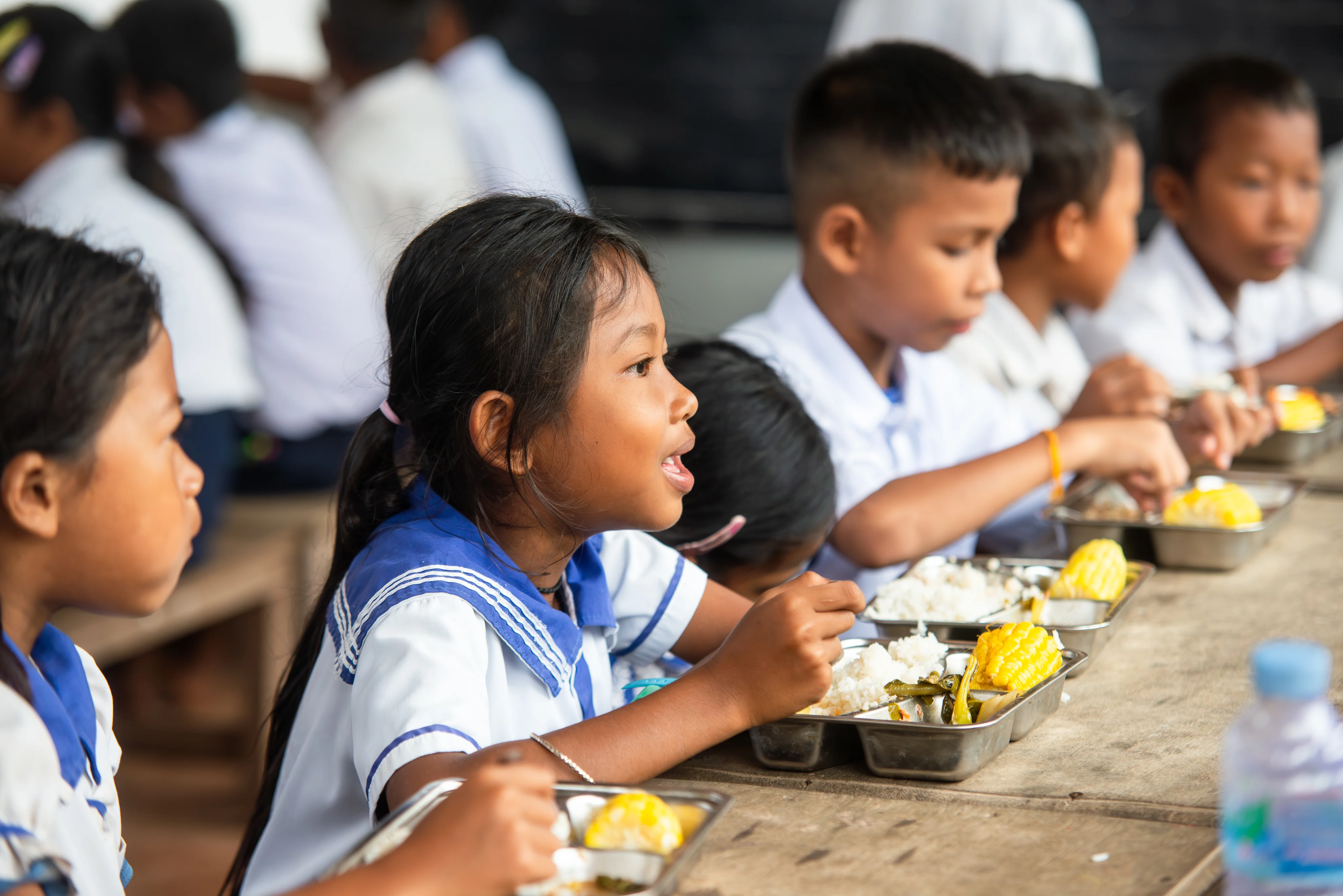
School Learning Gardens
In Cambodia, our School Learning Garden Program is a powerful example of gender transformative education that challenges gender norms while fostering hands-on learning experiences that go beyond the traditional classroom.
The School Learning Garden Program provides schools with the resources to create gardens where students, boys and girls can learn about growing and preparing nutritious food and caring for the environment. These gardens serve as a practical tool for educating students about agriculture and food security, teaching them not only how to grow crops but also why sustainable farming practices are crucial for the future.
One of the key successes of this program is its ability to engage students in active, experiential learning, with students learning science, literature, and math right in the gardens. By connecting classroom theories with practical experiences—like measuring plots, calculating water needs, and discussing the food system—children gain valuable knowledge while developing healthy attitudes towards eating. These lessons extend beyond the classroom, as students share what they learn with their families, fostering a culture of health and sustainability within the community.
Importantly, the program also works to challenge and disrupt limiting gender norms, encouraging both girls and boys to try new roles, such as cooking in the kitchen, challenging traditional notions of what boys and girls can do, and empowering them to become change-makers in their communities.
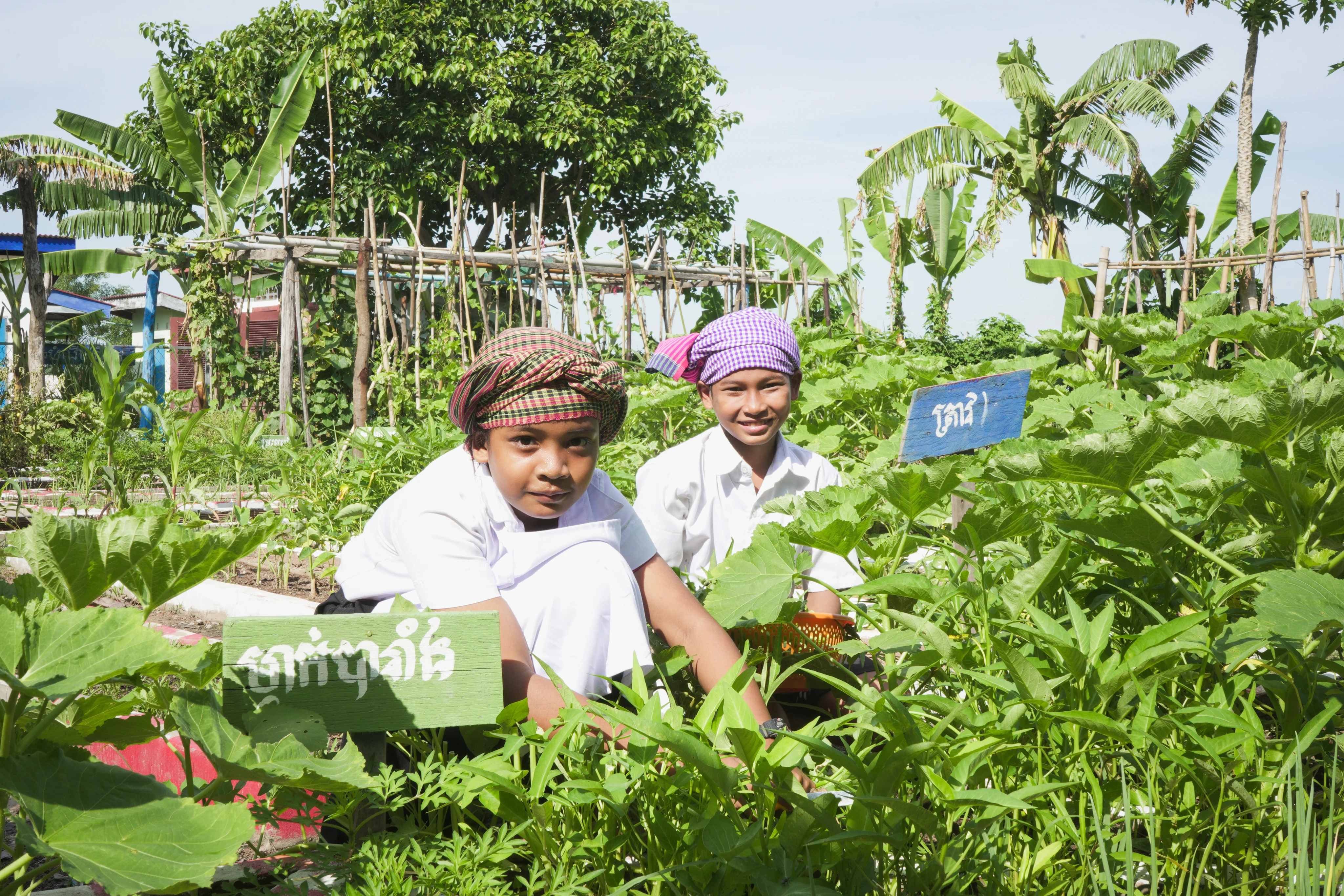
The School Learning Gardens have already benefited over 25,000 primary school children across 90 schools in Siem Reap.
This year, the initiative was officially adopted by the Cambodian Education Ministry as part of the national curriculum for grades four to six, which will enable an even greater impact on some of the country’s most marginalized and disadvantaged children.
- Parents have reported improved student health, greater environmental awareness, and stronger community bonds.
- 97% of parents noted that their children enjoy school more because of the program, with many saying it has positively changed their children's attitudes towards healthy eating.
- 73% of parents observed that their children are collaborating better, regardless of gender, with boys taking on roles such as cooking and cleaning at home.
